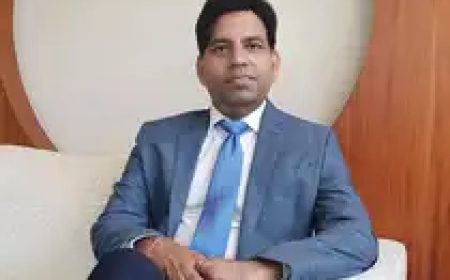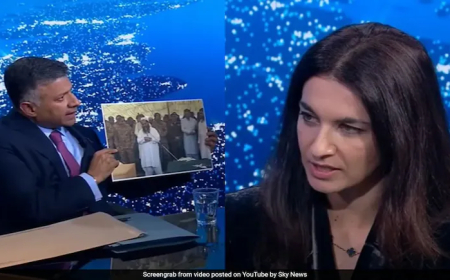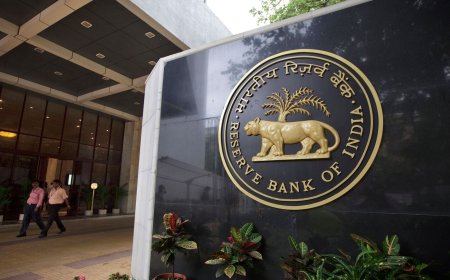Astronomer HR chief in Coldplay controversy has ties to ‘Boston Brahmins’: Who are they?
The Coldplay controversy involving HR chief Elizabeth Lowell uncovers ties to America’s elite Boston Brahmins. Who are they, and why does it matter? Read the full report.

A Surprising Connection in a Starry Dispute
A swirling controversy involving an HR chief who moonlights as an astronomer has unexpectedly thrust the elite American lineage of the “Boston Brahmins” into the global spotlight. The issue erupted after the HR executive, Elizabeth “Libby” Wadsworth Lowell—who is also affiliated with MIT’s observatory program—was linked to a workplace discrimination complaint and public backlash during Coldplay's recent Boston tour event. As media interest expanded, details emerged about her deep-rooted ties to one of America’s oldest aristocratic lineages: the Boston Brahmins.
While Coldplay’s management has distanced itself from the matter, citing no direct affiliation, the broader implications touch on legacy privilege, race, and social capital—all wrapped around an unusual mix of science, celebrity, and history.
Who Are the Boston Brahmins?
The term “Boston Brahmins” refers to the historically elite families of Boston, Massachusetts—primarily of Anglo-Saxon Protestant descent. Known for their influence in politics, academia, and the arts, these families include the Lowells, Cabots, Adamses, and Peabodys. They were America’s de facto aristocracy in the 18th and 19th centuries, often emphasizing high education, public service, and cultural refinement over flashy displays of wealth.
“The Boston Brahmins were America’s equivalent of Europe’s landed gentry,” says Dr. Eleanor Ridgeway, a historian at Harvard. “They saw themselves as custodians of culture and intellect. But over time, that identity became intertwined with exclusionary practices.”
Elizabeth Lowell, it turns out, is a direct descendant of the Lowell family—namesakes of both Lowell, Massachusetts, and Harvard’s Lowell House. Her dual role as an astronomer and corporate HR executive has now come under scrutiny for allegedly perpetuating institutional bias, despite her lineage’s proud academic traditions.
The Coldplay Connection: What Happened?
The controversy began when several MIT student interns involved in Coldplay’s sustainability stage project accused Lowell of discriminatory hiring practices and favoritism toward legacy applicants. The accusations gained traction when one of the students posted a since-deleted thread on X (formerly Twitter), referencing Lowell’s “Brahmin aloofness” and a dismissive remark allegedly made about “outsiders not understanding Boston values.”
While Lowell has not issued a public statement, a Coldplay spokesperson clarified that the band had no role in selecting local collaborators beyond sustainability endorsements.
However, the incident ballooned after internet sleuths traced Lowell’s genealogy, highlighting her ancestral links to the same Lowell family that co-founded Harvard’s Observatory and MIT’s early STEM programs. The implication: institutional continuity of privilege masked behind meritocratic frameworks.
Elite Lineages in the Age of Accountability
The reemergence of the “Boston Brahmin” narrative has prompted renewed discussion about the role of elite American families in perpetuating social inequities. As a case study, the Lowell family has had disproportionate influence over Boston's scientific and academic institutions for over a century.
“This isn’t about demonizing individuals,” says Dr. Marcus Shultz, a sociologist at Tufts University. “It’s about recognizing how historical privilege shapes contemporary systems—even progressive ones like science or sustainability.”
Critics argue that the scandal is emblematic of a broader problem in elite institutions: the conflation of heritage with competence, and how social class can subtly influence who gets to speak, work, or lead.
Market Context: Why Investors Are Watching
At first glance, the controversy may seem irrelevant to investors. However, Coldplay’s corporate sustainability partnerships—including deals with solar tech firms and carbon offset ventures—are publicly traded and tightly linked to ESG (Environmental, Social, Governance) metrics. Several partners, such as GreenSpan Energy (NASDAQ: GSE) and BioTrace Logistics, saw minor stock fluctuations following the media storm.
“Anything that disrupts ESG credibility—even tangentially—matters to investors,” notes Arjun Rao, ESG Analyst at Beacon Equity. “In Coldplay’s case, their brand equity is partially built on sustainability. If controversies chip away at that perception, market confidence can erode.”
Investor Outlook: Temporary Storm or Longer Shadows?
While analysts view the immediate fallout as minor, the event signals how reputational risk is no longer confined to CEOs or boardrooms. Individuals connected through professional or legacy networks can also bring volatility—especially when equity, privilege, and optics intersect.
“In the ESG era, brand narratives matter more than ever,” adds Rao. “For investors, the key question is whether this becomes part of a broader pattern or simply fades as a one-off.”
Coldplay’s tour continues without interruption, but behind the curtain, conversations about inclusion, elite structures, and legacy are becoming unavoidable—especially as old families like the Lowells find their relevance challenged in modern, global dialogues.
A Legacy Reexamined
As the dust settles, Elizabeth Lowell’s ties to the Boston Brahmin elite have sparked more than tabloid intrigue. They’ve opened a window into how heritage quietly shapes modern institutions—often without scrutiny. Whether this leads to real introspection or fades into the annals of pop-cultural controversy remains to be seen.
What’s clear, however, is that America’s old aristocracies still cast long shadows—even on Coldplay’s neon-lit stage.
What's Your Reaction?
 Like
0
Like
0
 Dislike
0
Dislike
0
 Love
0
Love
0
 Funny
0
Funny
0
 Angry
0
Angry
0
 Sad
0
Sad
0
 Wow
0
Wow
0












































































